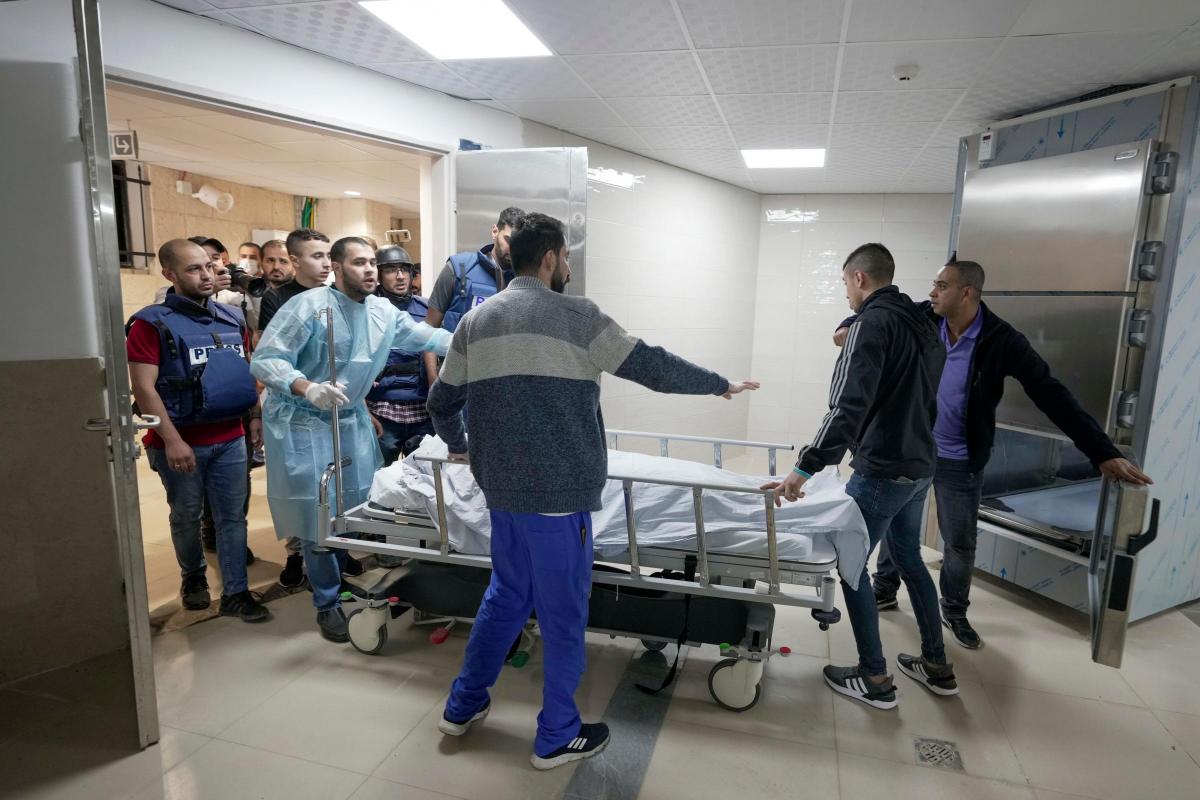
A PALESTINIAN journalist for Al Jazeera has been shot dead by Israeli forces while covering a raid in the occupied West Bank town of Jenin.
Shireen Abu Akleh, a well-known female reporter for the broadcaster’s Arabic language channel, died soon after being hit by a bullet.
Israeli forces said they are investigating.
Ali Samoudi, another Palestinian journalist, was hospitalised in a stable condition after being shot in the back.
The Qatar-based network interrupted its broadcast to announce Abu Akleh’s death.
In a statement flashed on its channel, it called on the international community to “condemn and hold the Israeli occupation forces accountable for deliberately targeting and killing our colleague”.
“We pledge to prosecute the perpetrators legally, no matter how hard they try to cover up their crime, and bring them to justice,” Al Jazeera said in a statement.
The Israeli military said its forces came under attack from heavy gunfire and explosives while operating in Jenin and fired back.
The military said it is “investigating the event and looking into the possibility that the journalists were hit by the Palestinian gunmen”.
Israel’s foreign minister Yair Lapid said it has proposed to the Palestinian Authority a joint pathological investigation into the reporter’s death.
“Journalists must be protected in conflict zones and we all have a responsibility to get to the truth,” he tweeted.
The Palestinian Authority, which administers parts of the occupied West Bank and co-operates with Israel on security matters, condemned what it said was a “shocking crime” committed by Israeli forces.
Abu Akleh, 51, was born in Jerusalem. She began working for Al Jazeera in 1997 and regularly reported on-camera from across the Palestinian territories.
In video footage of the incident, Abu Akleh can be seen wearing a blue flak jacket clearly marked with the word “Press”.
Samoudi, who was working as her producer, told The Associated Press they were among a group of seven reporters who went to cover the raid early on Wednesday.
He said they were all wearing protective gear that clearly marked them as reporters, and they passed by Israeli troops so the soldiers would see them and know that they were there.
He said a first shot missed them, a second hit him, and a third killed Abu Akleh.
He said there were no militants or other civilians in the area — only the reporters and the army.
He said the military’s suggestion they were shot by militants is a “complete lie”.
Shaza Hanaysheh, a reporter with a Palestinian news website who was also among the reporters, gave a similar account in an interview with Al Jazeera’s Arabic channel, saying there were no "clashes" or shooting in the immediate area.
She said when the shots rang out she and Abu Akleh ran towards a tree to take shelter.
“I reached the tree before Shireen. She fell on the ground,” Hanaysheh said.
“The soldiers did not stop shooting even after she fell. Every time I extended my hand to pull Shireen, the soldiers fired at us.”
Ran Kochav, an Israeli commander, told army radio the two journalists were standing alongside armed Palestinians.
He said the gunmen were “unprofessional people, terrorists, who were shooting at our troops”.
Israel has carried out near-daily raids in the occupied West Bank in recent weeks amid a series of attacks inside Israel, many of them carried out by Palestinians from in and around Jenin.
Another Al Jazeera reporter, Givara Budeiri, was briefly detained last year during a protest in Jerusalem and treated for a broken hand, which her employer blamed on rough treatment by police.
A number of Palestinian reporters have previously been hurt by rubber-coated bullets or tear gas while covering demonstrations in the West Bank.
A Palestinian journalist in Gaza was shot and killed by Israeli forces while filming violent protests along the Gaza frontier in 2018.
Another journalist working for a local Gaza radio station, who was shot on the same day at Gaza frontier, died a week later.
Residents were warned to evacuate and no one was hurt in the strike.
Israel said Hamas was using the building as a command centre but provided no evidence.







